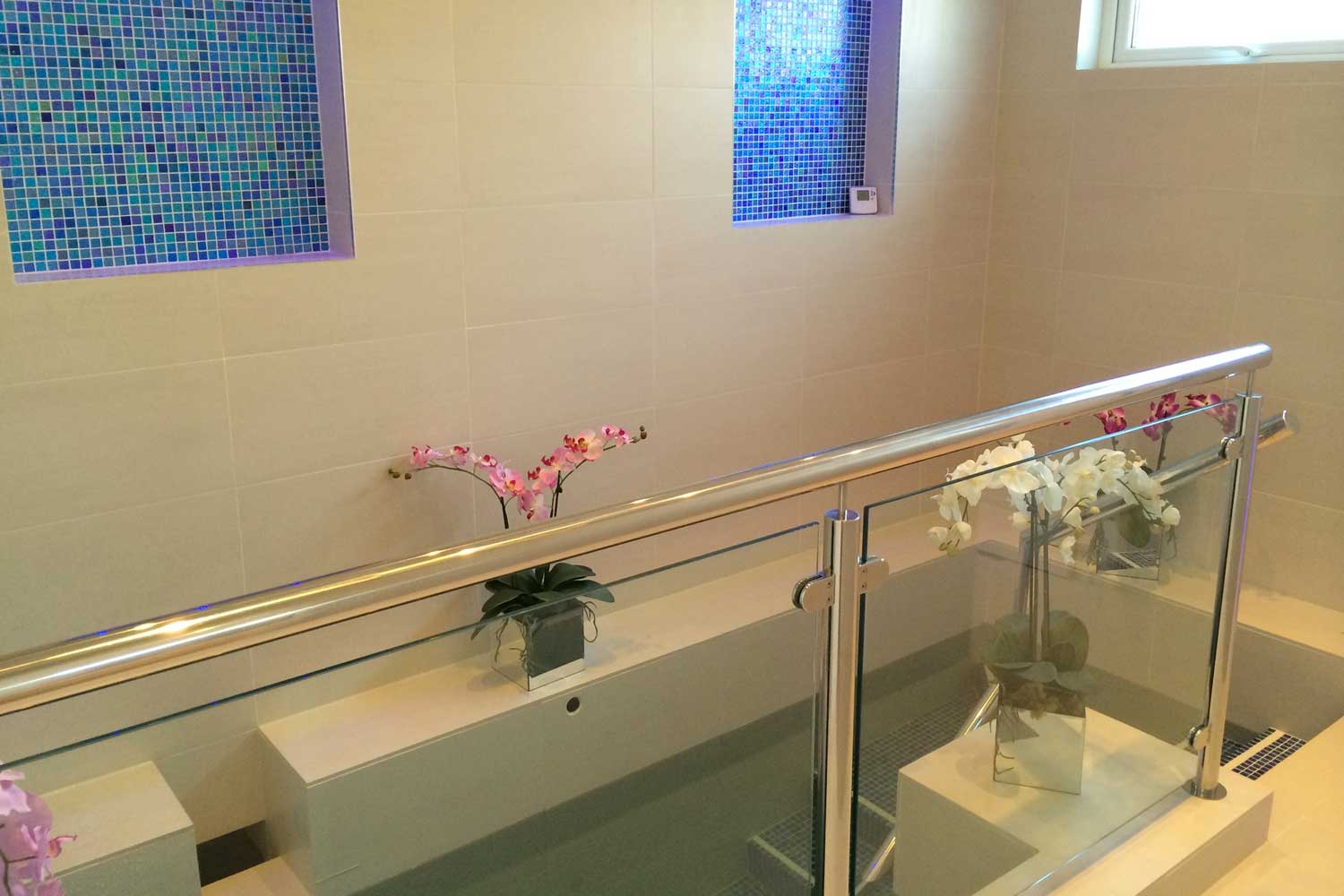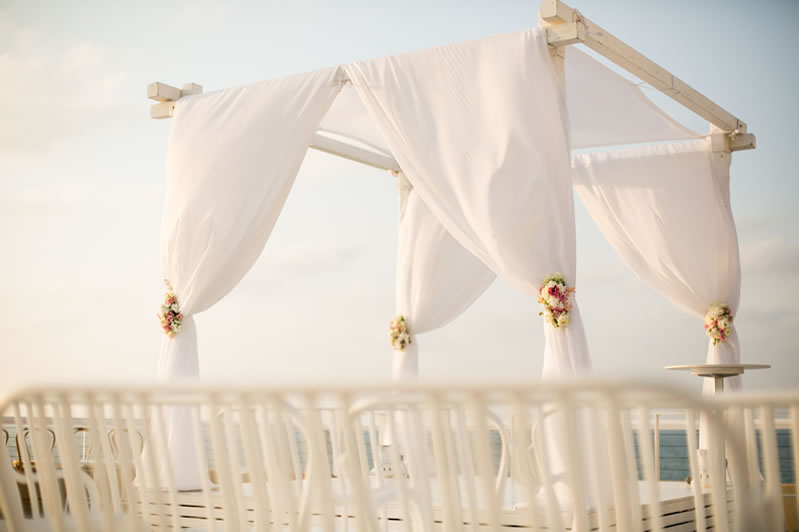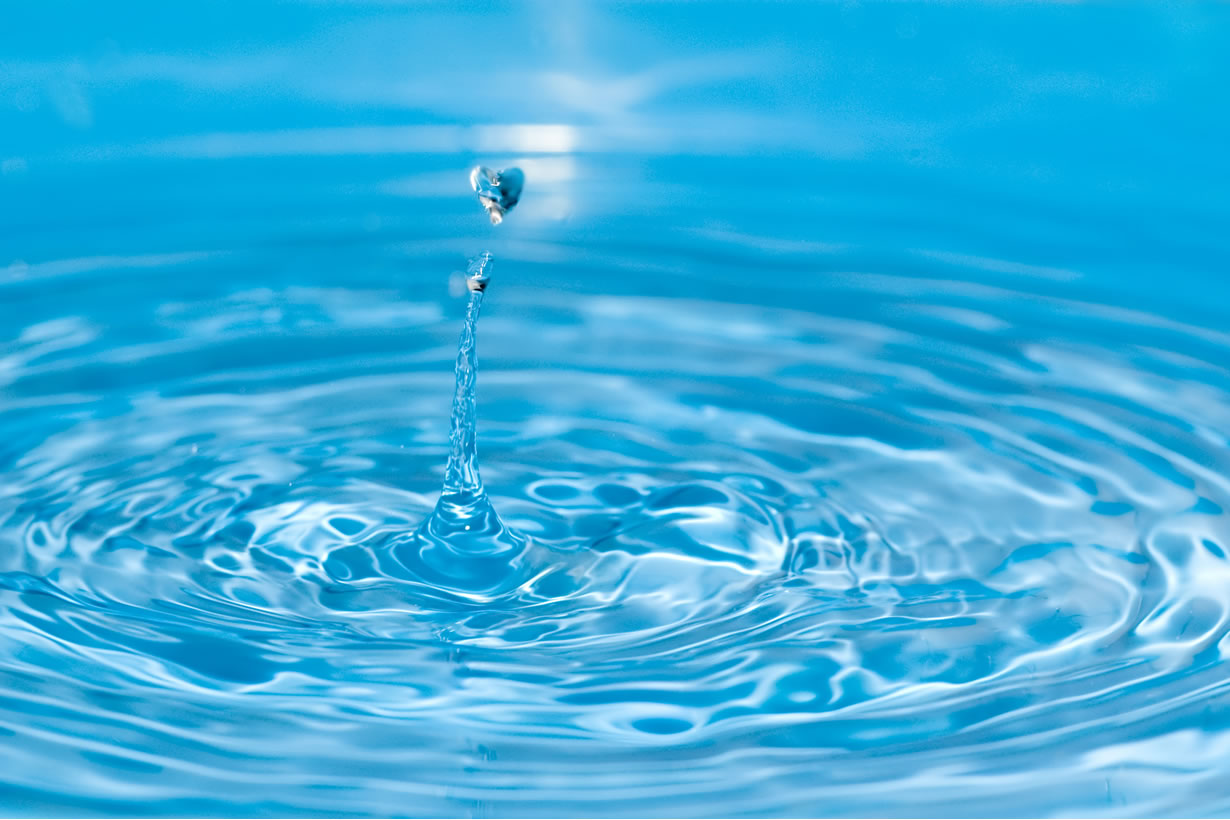What is Mikvah?
What is a Mikvah?
The world’s natural bodies of water – oceans, rivers, wells and spring-fed lakes – are mikvahs in their original form. They contain waters of divine source and, tradition teaches, have the power to purify. Created even before the earth took shape, these bodies of water offer a quintessential route to consecration. However these waters may be inaccessible or dangerous, not to mention the problems that they pose of inclement weather and lack of privacy. Therefore Jewish life necessitates the construction of mikvahs (“pools”), and indeed Jews have built mikvahs in every age, community and circumstance.
Briefly: A mikvah must be built into the ground or built as an essential part of a building. Portable receptacles, such as bathtubs, whirlpools or Jacuzzis can never function as mikvahs. The mikvah must contain a minimum of 200 gallons of rainwater that was gathered and siphoned into the mikvah pool in accordance with a highly specific set of regulations. In extreme cases where the acquisition of rainwater is impossible, ice or snow originally from a natural source may be used to fill the mikvah.
The mikvah waters are commonly chest high and kept at a comfortable temperature. Access to the pool is via shallow stairs. In some mikvahs lifts are available for the handicapped or infirm.
Although historically, mikvahs were sometimes built close to bathhouses, the mikvah never was a monthly substitute for a bath or shower. In fact Jewish law stipulates that one must be scrupulously clean before immersing.
Today’s modern mikvah frequently rivals a luxurious spa and offers women more amenities than they could enjoy at home – making the mikvah experience a special monthly ‘time-out’ pampering evening.
Culturally a mikvah is of such significance that the rabbis of the Talmud ruled that if a community has neither a mikvah nor a synagogue, building a mikvah takes priority over building a synagogue.

The world’s natural bodies of water – its oceans, rivers, wells and spring-fed lakes – are mikvahs in their original form.

A modern Mikvah in Southend
When is a Mikvah used?
In the practice of mikvah and Family Purity, a Jewish couple separates when the wife begins her monthly period and physical contact doesn’t resume until seven days following the conclusion of her period. On the eve of the night that the couple is to resume physical relations, the woman (after careful preparation) immerses in the waters of the mikvah, where she utters a prayer inviting G-d to sanctify their forthcoming intimacy.
Essentially the sexual union is an affirmation of life, as the couple joins together in the sacred endeavour to draw a new soul from its heavenly source into this world.
However, Jewish law calls for the use of mikvah even among couples for whom procreation is not possible. Indeed, Jewish law also calls for the active pursuit of a healthy, wholesome intimate relationship in married couples of all ages, and considers it an independent value. Even after menopause, if she has never been, or lets the practice lapse, the woman can go to the mikvah once and it retroactively brings blessing to herself, her husband and her family.

The bathrooms at a Mikvah used prior to immersion.
Is a Mikvah used only by women?
No. A mikvah can be used by men and has various other uses:
- It is the final stage of conversion to Judaism
- It is used by men customarily at auspicious times, such as before Yom Kippur and a groom on his wedding day. Many men use it Erev Shabbat, while some men even use the mikvah daily before prayer.

Mikvahs may be used by males, such as a groom on his wedding day.
Why Mikvah?
Boredom in marriage is no trifling matter. It is extremely destructive: in our times it is one of the leading causes of divorce.
In discussing sexuality, the Talmud explains a simple law of human nature: something constantly available to us eventually loses lustre in our eyes. We allow routine to replace excitement, and grow contemptuous and bored.
This is the first and most obvious advantage of mikvah. For approximately two weeks every month a husband and wife are off limits to each other. Because of this monthly vacation, a husband and wife become like a bride and groom to one another each month, again and again. There is perpetual freshness to the relationship by observing the laws of family purity. Discover more about Family Purity here.
Second, mikvah teaches us the value of restraint. In a world where infidelity is a common as it is today – whereby a high percentage of married men are unfaithful – people have to learn the art of restraint.
Third, mikvah gives us the invaluable asset of adding space to our times of togetherness. It affords us the opportunity to be ourselves in a way not possible if there were no separation period.
Two people who strengthen their individuality during this time of separation, join again and enrich each other precisely because they’ve strengthened that part of themselves that is theirs and only theirs.
Finally, mikvah teaches us that we are not objects. Because I don’t belong to you and you don’t belong to me in the same way we do during the togetherness period, I am compelled to treat you as a whole person, not as an object for my pleasure. This is an invaluable lesson in our society which continues to treat women as objects, in advertising, at the workplace and too often in the home itself.
We also learn to communicate better with each other through mikvah. Many problems can be glossed over by a hug and a kiss. During the two weeks without intimate contact, a couple has to learn how to talk about everything including many difficult things. We get to know each other’s inner thoughts in ways we might not otherwise. Intimacy – real intimacy- is the result.
Without serving a higher purpose, our physical intimacy is just that – physical. With mikvah, and G-d’s presence, the intimate relationship changes from something that’s completely physical, an act which subhuman species also engage in, to an act of holiness and the highest expression of two people.

